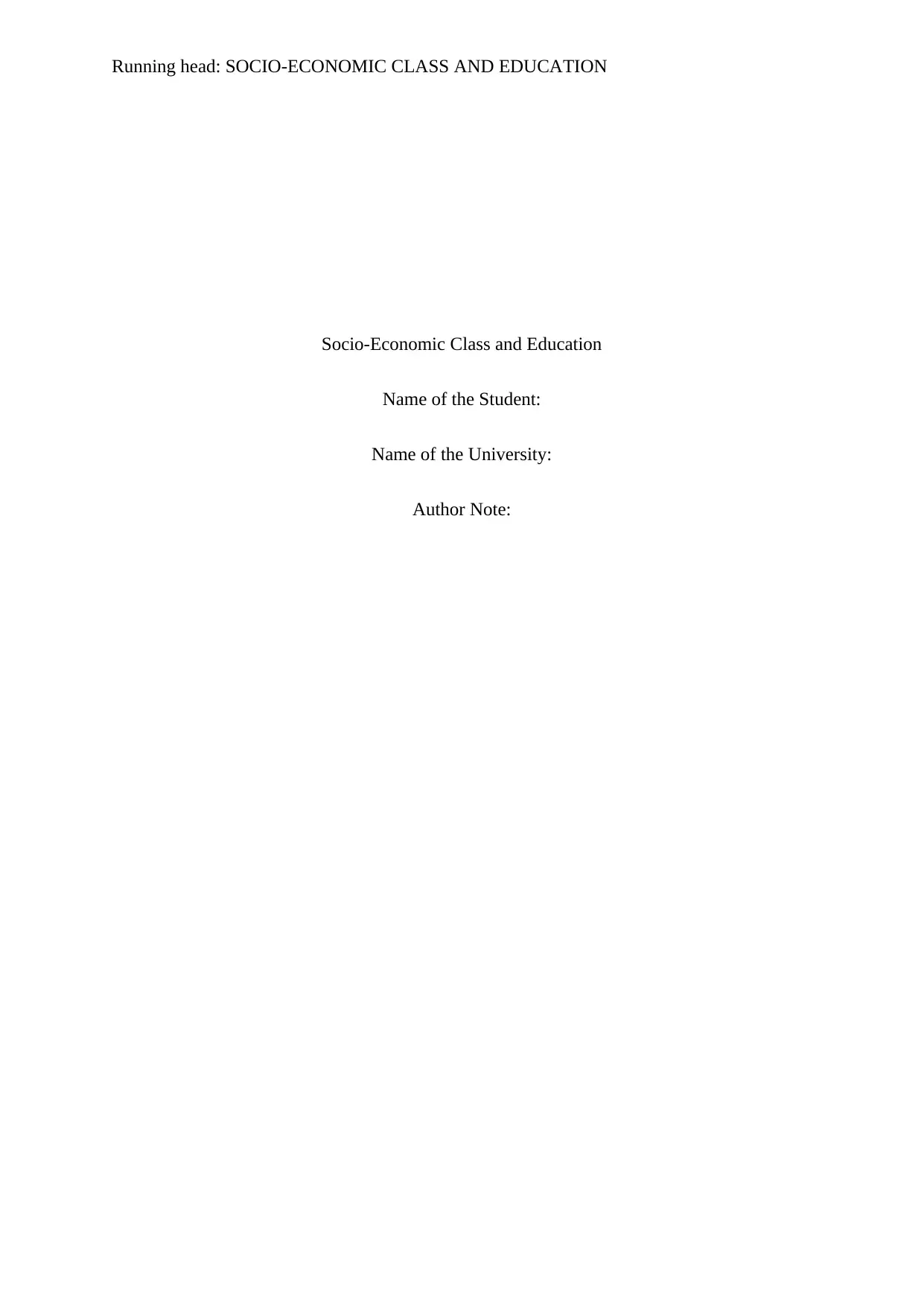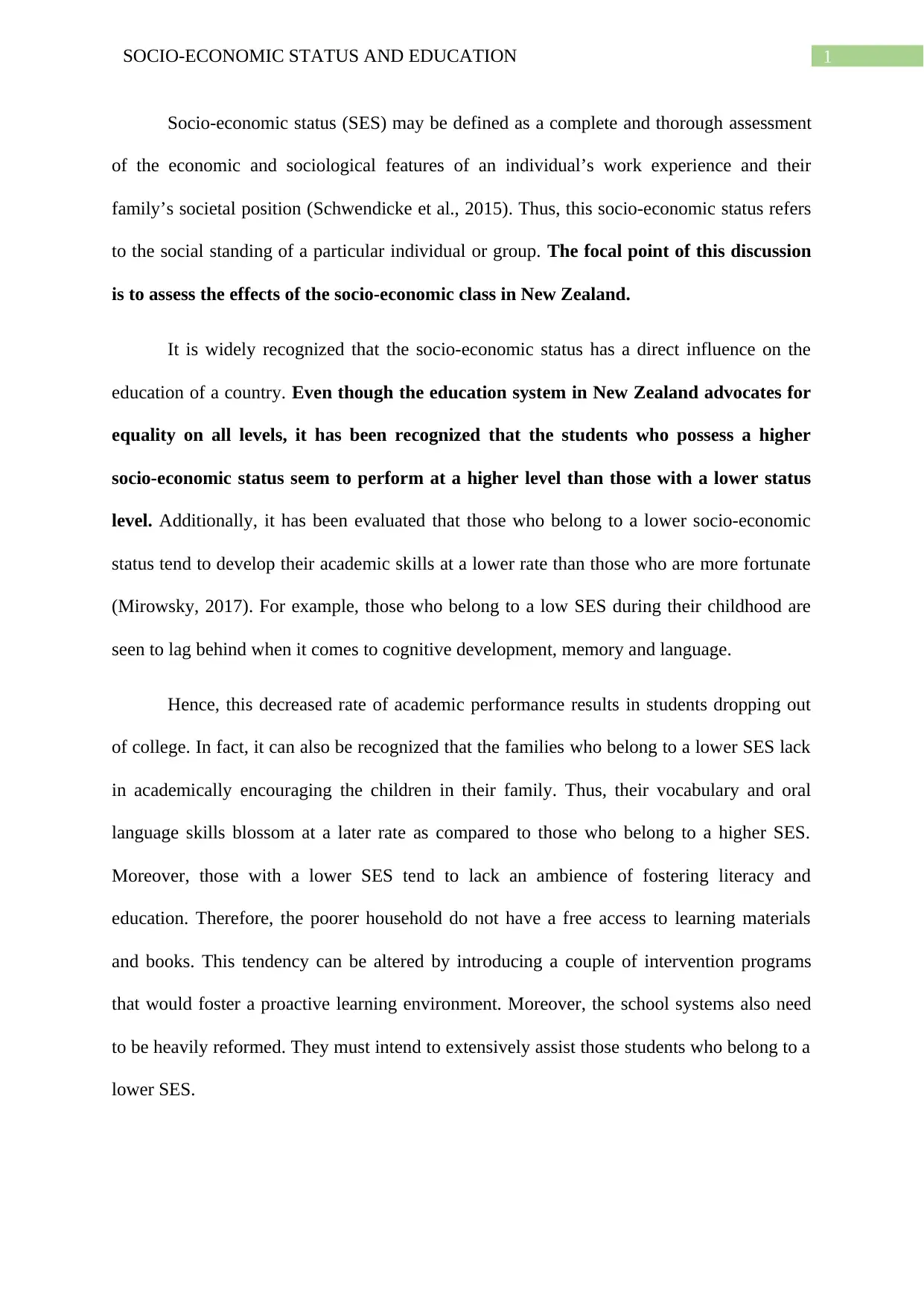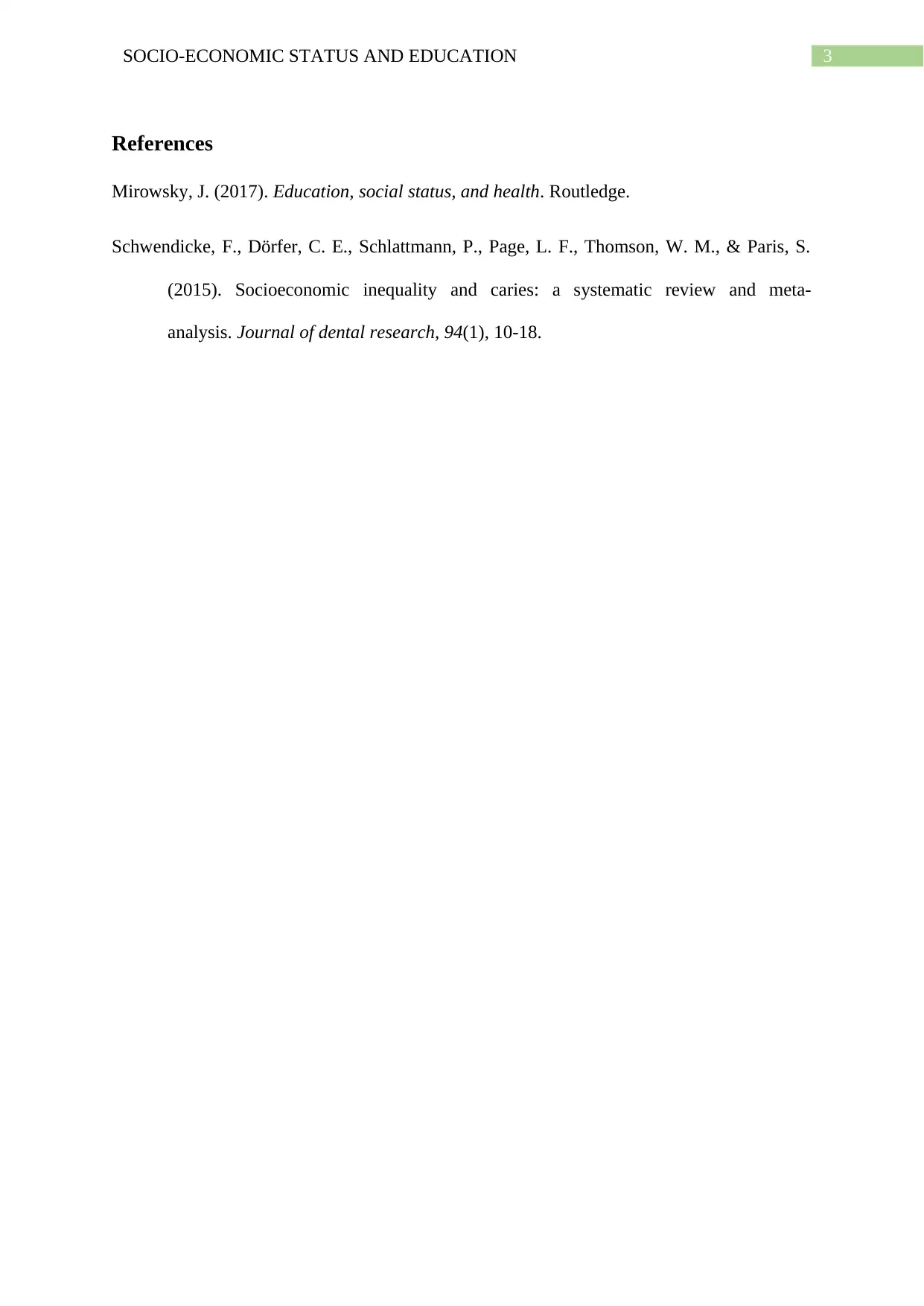The Impact of Socio-Economic Class on Education in New Zealand
VerifiedAdded on 2022/12/27
|4
|529
|50
Report
AI Summary
This report examines the relationship between socio-economic class and education in New Zealand. It highlights how students from lower socio-economic backgrounds often face disadvantages, including slower cognitive development, limited access to learning resources, and reduced parental support for education. The report underscores the impact on academic performance, potentially leading to higher dropout rates and lower overall achievement. The author suggests that intervention programs and school reforms are needed to address these disparities. By providing equal opportunities and resources, the report concludes that the educational landscape can be improved to ensure a more equitable academic experience for all children in New Zealand.
1 out of 4











![[object Object]](/_next/static/media/star-bottom.7253800d.svg)